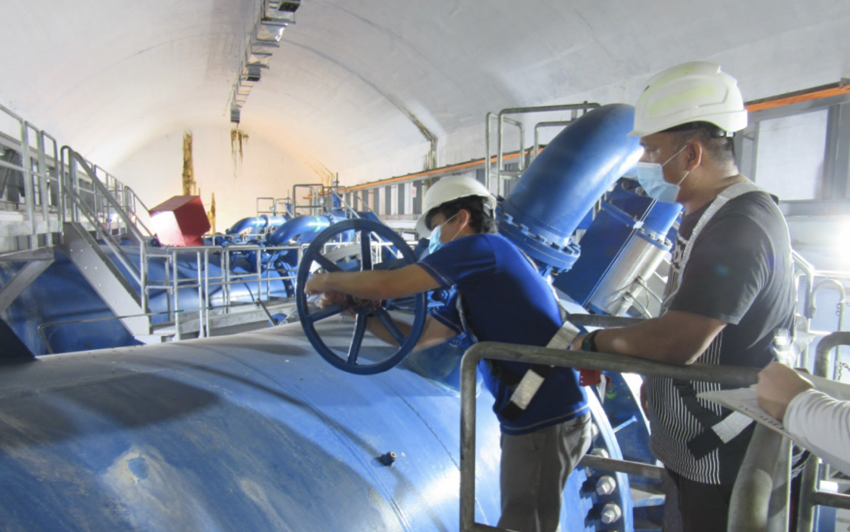
BY LEANDER C. DOMINGO
RAMON, Isabela (May 9)—Commemorating the World Day of Safety, renewable energy solutions provider SN Aboitiz Power (SNAP) Group highlighted the importance of occupational safety and health (OSH) systems in achieving safety goals, building organizational resiliency and responding to crises.
In a recent virtual activity, SNAP teams in Benguet, Isabela, Ifugao and Taguig joined the event where their health, safety and environment (HSE) leaders shared how SNAP protocols enabled teams to prepare for and respond to calamities such as typhoons.
Joseph Yu, SNAP President and chief executive officer, said their HSE leaders shared how SNAP continues to manage the ongoing coronavirus disease 2019 (Covid-19) pandemic through continuous improvement of response and management measures.
One of the highlights of the celebration was the employees’ demonstration of how the company helps them deal with crises at home and in the workplace.
“Safety is ingrained in our DNA here in SNAP. Our teams have adapted well to new ways of getting things done without compromising their safety or that of others. Our goal is to drive the continuous improvement of our HSE systems, behavior and culture in SNAP,” Yu said.
As of the end of the first quarter of this year, SNAP-Benguet and SNAP-Magat have worked 4,885,310 and 1,809,490 injury-free work-hours, respectively. Both sites are certified in Integrated Management System including ISO 14001:2015 and ISO 45001:2018, which respectively cover environmental management as well as occupational safety and health management systems.
“To ensure unimpeded supply of electricity and ancillary services to the grid, SNAP-Benguet and SNAP-Magat both initiated lockdown operations at the onset of the pandemic in 2020. Increasingly stringent safe zones were set up in the operating areas of the sites. Pre-existing work-from-home arrangements were also augmented for those who can work remotely,” Yu said.
He said safety protocols are strictly enforced, all employees and contractors on lockdown are subject to routine RT-PCR testing and are given enough vitamins to boost their immune systems and a “safe haven” is established to ensure enough food and medical supplies to last for 28 days.
“In SNAP, the health and safety of our employees, customers, and partners remain our number one priority and we are working hard to make sure that we do not let our guard down,” Yu added.
SNAP LOCKDOWNS SUSTAINED
Yu said both SNAP-Benguet and SNAP-Magat remain in lockdown operations, while teams at its management services office in Taguig are still working from home.
SNAP has extended this health and safety culture to host communities and other beneficiaries giving a total of PhP28.8 million worth of food aid and medical aid have been mobilized as Covid-response for host communities in Benguet, Ifugao, Isabela and Nueva Vizcaya.
In December 2020, SNAP also launched “Project REbuild” which successfully raised PhP807,000 to help families in priority areas in Cagayan and Isabela whose homes were damaged by Typhoon Ulysses.
A joint venture of Scatec Solar and Aboitiz Power Corporation (AP), SNAP owns and operates the 105-MW Ambuklao and 140-MW Binga hydroelectric power plants in Benguet; the 388-MW Magat hydroelectric power plant on the border of Isabela and Ifugao; and the 8.5-MW Maris hydroelectric power plant in Isabela.
Scatec is a Norway-based leading renewable power producer that delivers affordable and clean energy worldwide. As a long-term player, Scatec develops, builds, owns, and operates solar, wind, and hydro power plants and storage solutions.
AP is the holding company of the Philippines-based Aboitiz Group’s investments in power generation, distribution, and retail electricity services. It advances business and communities by providing reliable and ample power supply at a reasonable and competitive price, and with the least adverse effects on the environment and host communities.
